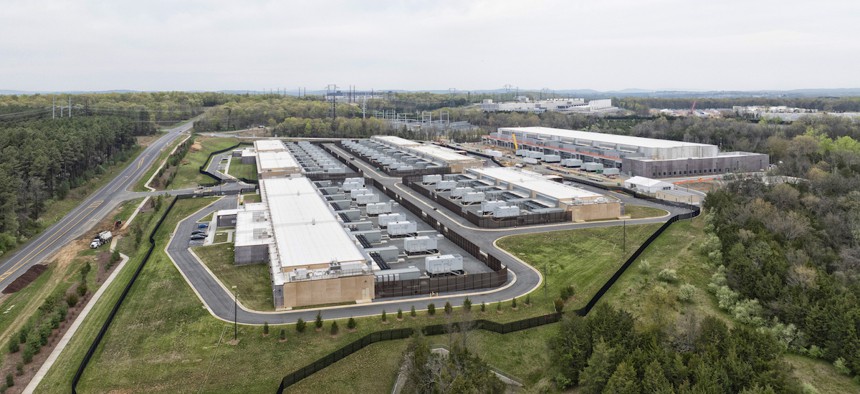Minnesota lawmakers extend tax breaks for Big Tech data centers

Gerville via Getty Images
The once boutique tax subsidy has exploded in cost in recent years, as tech companies chased the benefit to meet ever increasing demand for computing power.
This story was originally published by the Minnesota Reformer.
The Legislature passed a bipartisan bill Monday that extends tax breaks for some of the country’s most profitable technology companies on their data centers up to the year 2077, in a win for both Big Tech and the trade unions that build the data warehouses.
The once boutique tax subsidy has exploded in cost in recent years, as tech companies chased the benefit to meet ever increasing demand for computing power. In fiscal year 2015, the state estimated a sales tax break for data center purchases of computers, servers and other equipment costs the state about $6 million. That number is projected to explode to $114 million in fiscal year 2025 — a 1,800% increase — according to state tax expenditure reports.
Minnesota currently has 42 data centers, with the majority spread across the metro. Nationwide, tech companies are rapidly building data centers — warehouses with computer servers used to power the internet and, increasingly, AI — to store and process data.
As Gov. Tim Walz and his fellow Democrats in the divided Legislature confronted a worsening fiscal outlook, however, they looked to the data center tax breaks. They settled on revoking the sales tax exemption on electricity bills, which are massive because of data center energy requirements.
Curbing this tax break alone will bring in an estimated $140 million over the next four years.
But lawmakers also gave Big Tech a win, extending the expiration of the state’s sales tax break for data centers on purchases of computers, servers, software and cooling and energy equipment.
Minnesota law currently allows data centers this sales tax exemption on technology equipment for 20 years, up to the year 2042. The bill passed Monday will extend the tax break to 35 years with a sunset date of 2042. This means that a data center that makes its first purchase in 2042 could continue claiming the exemption until 2077.
Sen. Ann Rest, DFL-New Hope, has been negotiating for the data center sales tax break throughout the session. Rest, the Senate’s chief author of the data center bill, said the Legislature can use the tax breaks as leverage to ensure proper regulation of the nascent industry.
“This is the beginning of how we can bring a new industrial age that is one that we are going to control,” Rest said Monday.
The bill also includes a new annual fee on large-scale data centers between $2 million and $5 million to go to the Department of Commerce’s weatherization account, which grants energy upgrades to low-income Minnesotans. The bill also requires public utilities to offer a clean energy tariff for data center companies, i.e, the company can pay an additional fee to the utility for the utility to fund the development of clean energy technology that the data center could one day consume.
Rep. Athena Hollins, DFL-St. Paul, voted against the bill.
“I am anti-tax breaks for billionaires. When we are saying that we are trying to incentivize people to come to our state to build these facilities, we are saying that the tax burden is going to lie on our constituents,” Hollins said Monday.
The sales tax exemption on technology equipment — even with the elimination of the sales tax break on electricity — is expected to cost Minnesota $133 million in fiscal year 2027 and jump to $219 million in fiscal year 2029 as the number of data centers increases and they purchase more equipment, according to the Department of Revenue.
The data center tax breaks are a huge win for building trade unions, which warned lawmakers that Minnesota will lose jobs if it can’t compete with neighboring states to entice tech giants to build their data centers here.
Amazon recently announced it was suspending construction of a data center in Becker, citing regulatory uncertainty. Meanwhile, the company announced a $20 billion data center project in Pennsylvania, where Gov. Josh Shapiro — a potential Walz rival for the 2028 Democratic presidential nomination — stood with construction workers to make the announcement.
The Minnesota data centers package included a provision requiring that companies must pay workers a prevailing wage to build the data centers, which ensures much of the construction will be done by unionized companies.
The House passed the bill 85-43 and the Senate 40-26.
Walz is expected to sign the data centers package.
Minnesota Reformer is part of States Newsroom, a nonprofit news network supported by grants and a coalition of donors as a 501c(3) public charity. Minnesota Reformer maintains editorial independence. Contact Editor J. Patrick Coolican for questions: info@minnesotareformer.com.





